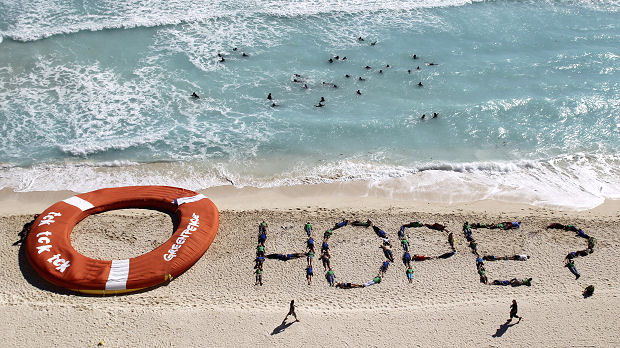Climate change deal: modest steps agreed in Cancun
What has been called a ‘modest’ climate change deal has been agreed by nearly 200 nations at a UN conference in Mexico. But there were objections from Bolivia who said the deal did not go far enough.
After two weeks of talks the climate change deadlock between rich and poor nations of the world appears to have been broken.
After a marathon overnight session the Mexican Foreign Minister Patricia Espinosa signed off a deal that includes plans to design a Green Climate Fund, steps to protect the tropical forests and ways to help poorer developing nations adapt to climate change.
The goal of raising $100bn in aid for poor countries in the next decade was reaffirmed, but it was agreed to put off major disputes until 2011 and beyond.
Expectations for the Cancun summit had been low after the world leaders failed to agree to a treaty at Copenhagen last year.
“The most important thing is that the multilateral process has received a shot in the arm, it had reached an historic low. It will fight another day,” said Indian Environment Minister Jairam Ramesh. “It could yet fail.”
Energy secretary Chris Huhne said that the Cancun deal means the EU will improve on its current cuts of 20 per cent below 1990 levels of on greenhouse gas emissions.
“Probably the most significant agreement of its kind since Kyoto – Chris Huhne”
He said “I think it definitely makes an agreement on 30 percent in the EU more likely.”
Bolivia had objected to the deal, and demanded richer nations go further – saying their climate polices were causing “genocide” with 300,000 deaths a year.
“I urge you to reconsider,” Bolivian delegate Pablo Solon told Espinosa. After repeated anti-capitalist speeches by Solon, Mexico’s Espinosa said that Bolivia’s objections would be noted in a final report but could not derail the accord by 190 nations.
The U.S. climate envoy, Todd Stern, said the steps that had previously been reached in Copenhagen were “carried forward in a really exceptional way here today.”
Christiana Figueres, head of the U.N. Climate Change Secretariat, said the Cancun deal was historic saying:
“It’s the first time that countries have agreed to such a broad set of instruments and tools that are going to help developing countries in particular,” she said.
However Greenpeace cautioned that while Cancun “may have saved the process”, it has yet to “save the climate.”
Chris Huhne interview
Energy Secretary Chris Huhne joined us from Cancun in Mexico. He defended the gains made in Cancun when it was put to him that the gains were not significant.
“I don’t believe they (countries at the UN) would have been fighting quite as hard over every last comma in this text if they weren’t taking this seriously.
“There’s been a tremendous amount of activity in countries which have been reluctant to commit themselves legally to international targets.
“In China for example they’re investing a lot in the low carbon goods and services, and green growth and that is coming through.”
He called it a “major step forwards” and said it was “probably the most significant agreement of its kind since Kyoto.”
